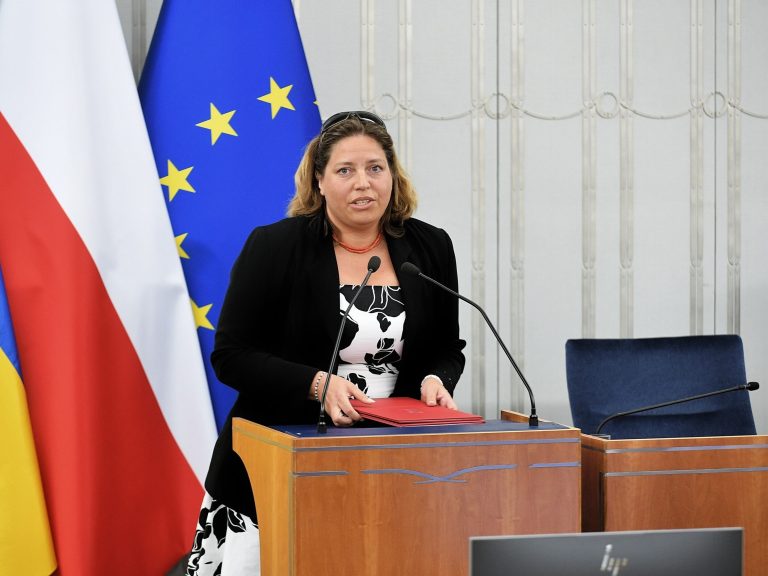What will the first money from the KPO be used for? The minister enumerates

This is an extremely important day that Poles have been waiting for for two years. After two years, finally, as a result of decisions made by the European Union, your Ministry of European Funds could send the first application for payment from the KPO, said Katarzyna Pełczyńska-Nałęcz, Minister of Funds and Regional Policy, on Friday.
On Friday, the Minister of Funds and Regional Policy, Katarzyna Pełczyńska-Nałęcz, announced that she had signed an application for payments in the amount of EUR 6.9 billion. – Brussels has two and a half months from the moment of formal submission of the application for evaluation. (…) This is the procedure of the European Commission. The first tranche from the relevant KPO should be received within two and a half to three months, said the Minister of Funds and Regional Policy Katarzyna Pełczyńska-Nałęcz in “Guest of Events” in Polsat.
The money from the KPO can be spent until the end of 2026
She assured that the government is fully determined “for Poland to be a law-abiding country and to respect the independence of the judiciary.” – It’s not like we’re doing something for the EU. This is for citizens. Citizens should want a judge to be independent. These things were and are in this government and, of course, they bore fruit, said Katarzyna Pełczyńska-Nałęcz, commenting on the announcement of the payment of the first funds from the National Reconstruction Plan.
She added that we have little time to spend EU money. The deadline will expire at the end of 2026. – We have lost two years – said the minister.
What are the KPO funds for?
When asked about the purposes for which the money will be spent, she pointed to the green energy transformation and public services: health care, education, green transport. She emphasized that there will be a review of projects that PiS has started to implement without support from EU funds.
– We will have to look at whether these expenses can be classified and I hope that most of them will be classified as KPO. If not, and they were made by state institutions, they will be a burden on the state budget and that would not be good news, she emphasized.






